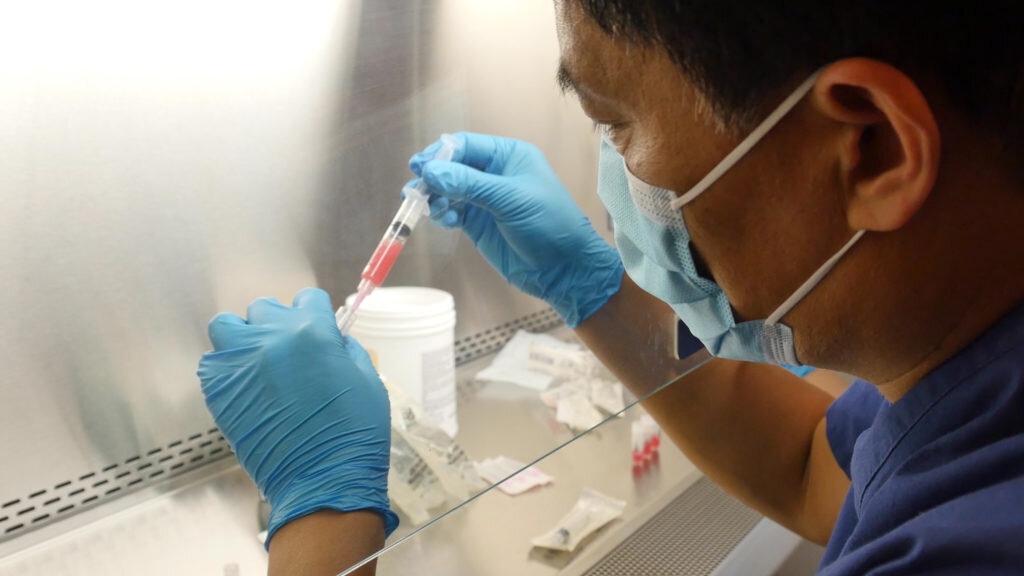FDA Approves Stem Cell Trials for Coronavirus
/By A. Rahman Ford, PNN Columnist
As the U.S. comes to terms with the severe and often deadly consequences of the COVID-19 outbreak, novel medical interventions are being sought to stem the tide of casualties.
President Trump has touted the use of hydroxychloroquine to treat coronavirus, while the Food and Drug Administration has approved clinical trials for the anti-viral drug remdesivir and blood plasma from those who have recovered from COVID-19.
The FDA has also quietly approved clinical trials of stem cell therapy. The use of stem cells is intriguing because of their established immunomodulatory properties and their ability to repair injured tissue, such as the lungs that are ravaged by more severe cases of coronavirus.
A key driver of death among coronavirus cases is Acute Respiratory Distress Syndrome (ARDS), which is characterized by an explosive acute inflammatory response in the lungs, also known as a “cytokine storm.”
Currently, the main therapeutic intervention for ARDS is mechanical ventilation. However, ventilators are invasive, in short supply and they increase the risk of bacterial infections.
Several stem cell companies are following the lead of Chinese scientists, who used injections of mesenchymal stem cells (MSCs) derived from umbilical cord blood to successfully treat patients with coronarvirus infections.
A small study recently published in the journal Aging and Disease confirmed the safety and effectiveness of MSCs in treating 7 patients in a Beijing hospital with COVID-19 pneumonia. The study’s authors found that MSC injections inhibit the overactivation of the immune system, regulate inflammatory response, promote tissue repair and improve lung function.
The FDA recently approved an investigational new drug application from Australia-based Mesoblast for intravenous infusion of its MSC product called remestemcel-L.
“The FDA clearance provides a pathway in the United States for use of remestemcel-L in patients with COVID-19 ARDS, where the prognosis is very dismal, under both expanded access compassionate use and in a planned randomized controlled trial,” Mesoblast Chief Medical Officer Dr. Fred Grossma said in a statement.
Remestemcel-L has been under development by Mesoblast for several years. It is believed to counteract inflammatory processes by inhibiting production of pro-inflammatory cytokines by white blood cells, while promoting the production of anti-inflammatory cells. The safety and therapeutic effects of remestemcel-L infusions have been evaluated in over 1,100 patients in various clinical trials.
Texas-based Hope Biosciences has also received FDA approval for a Phase II clinical trial to evaluate the safety and efficacy of MSCs in providing immune support against COVID-19. The company uses a patient’s own stem cells – referred to as autologous cells – to treat trial participants who are at a higher risk of developing severe COVID-19 symptoms.
“Most people who have been severely affected by COVID-19 had preexisting conditions. We are pre-treating participants who are at higher risk of developing severe COVID-19, with the belief that we can prepare their immune systems, giving them their best chance to fight the virus,” said Donna Chang, President and CEO of Hope Biosciences.
Celltex Therapeutics, another Texas-based company, has applied to the FDA for emergency expanded access to its autologous MSCs to treat COVID-19. Celltex uses proprietary technology that isolates, multiplies and stores MSC’s derived from fat tissue for use in regenerative therapy for a number of conditions, including vascular, autoimmune and degenerative diseases.
New Jersey-based Celularity has received FDA approval to begin a trial of stem cells derived from human placentas – what the company calls “Natural Killer” cells. Celularity’s product – CYNK-001 – has already been used safely in patients with leukemia and multiple myeloma.
Natural killer cells play a key role in the body’s natural defense against viral infections. Former New York Mayor Rudy Guliani recently discussed the trial with Celularity founder and CEO Robert Hariri on his YouTube channel.
The FDA’s current effort to speed these therapies to Americans who need them is laudable. However, its effort could be enhanced exponentially by loosening its restrictions on autologous stem cells more generally. When the health of so many Americans is imperiled and the avenues for treatment are so few, waiting is not an acceptable option.
A. Rahman Ford, PhD, is a lawyer and research professional. He is a graduate of Rutgers University and the Howard University School of Law, where he served as Editor-in-Chief of the Howard Law Journal. Rahman lives with chronic inflammation in his digestive tract and is unable to eat solid food. He has received stem cell treatment in China.




